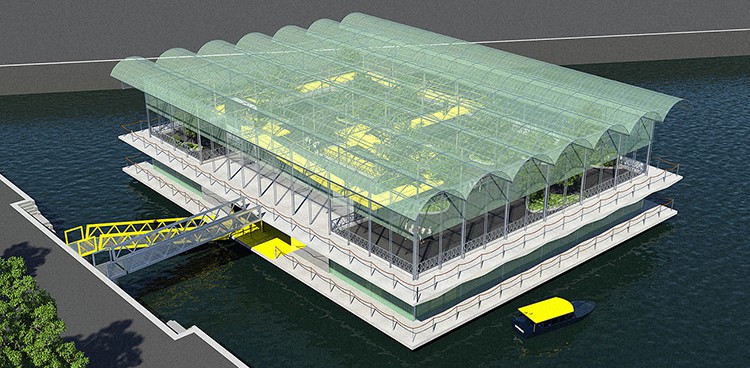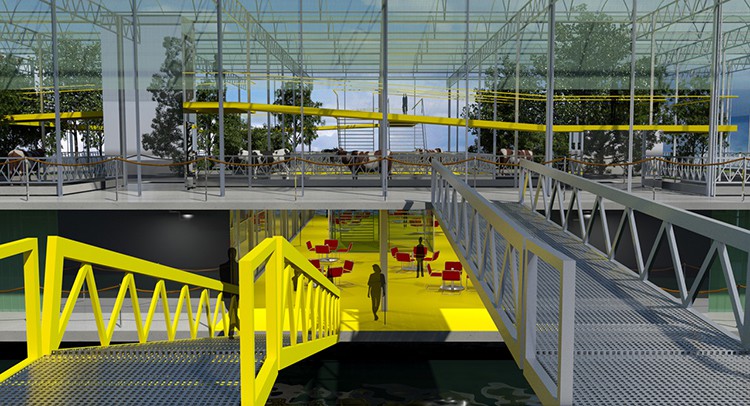
Ah, Rotterdam. Home of striking skylines, exciting nightlife, enriching museums—oh, and a floating dairy farm.
“Eating local” can be a tall order in crowded cities, where there isn’t exactly a surplus of space for farmers to do their thing. Grass needs room to grow, and it’s often easier to just eat food that originates somewhere else. Peter van Wingerden, director of Netherlands property development company Beladon, has a solution: Why limit farming to existing land?
Floating Farm, Wingerden’s brainchild—inspired in part by the rapid decline in New York’s food supply after Hurricane Sandy—is, well, pretty much exactly what it sounds like. Expected to be completed in January of next year, the structure will float on the water and house 60 cows, each with about 160 square feet of space to herself. The dairy production will happen on board, and 15-20 percent of the cows’ diets will consist of grass (carefully tested to ensure that it is healthy and rich in vitamins) grown on the farm.

And Wingerden isn’t stopping at taking charge of what goes into the cows—he’s also got a destination for what comes out. The farm’s floor will be permeable, and technology is in the works that will allow for the automatic separation of urine from manure, making it possible to then turn the manure into fertilizer as well as blocks to burn for energy.
This isn’t Rotterdam’s first foray into creative food architecture. In 2014, the Markthal Rotterdam came into being, spearheaded by Dutch design firm MVRDV to comply with a government ban on open-air meat and fish markets. The structure is a huge, dome-covered, not-quite-open-air market with glass panels enclosing both ends, and it features food, murals, and even apartment units. So the Dutch know what they’re doing when it comes to designing ingenious spaces for food.
Floating Farm could pave the way for similar projects elsewhere, which could mean a wealth of new possibilities for eating locally. The compact, sustainable future of dairy is rapidly approaching, folks, and it floats.
Photos courtesy of Floating Farm via Fast Company



